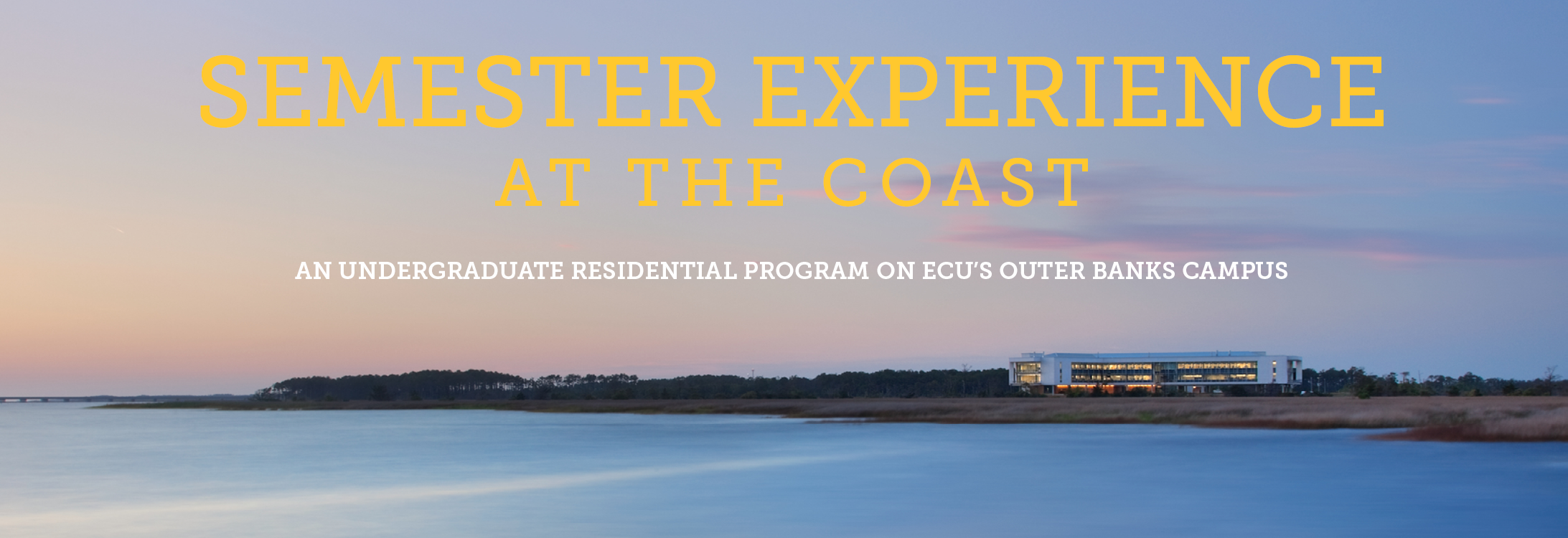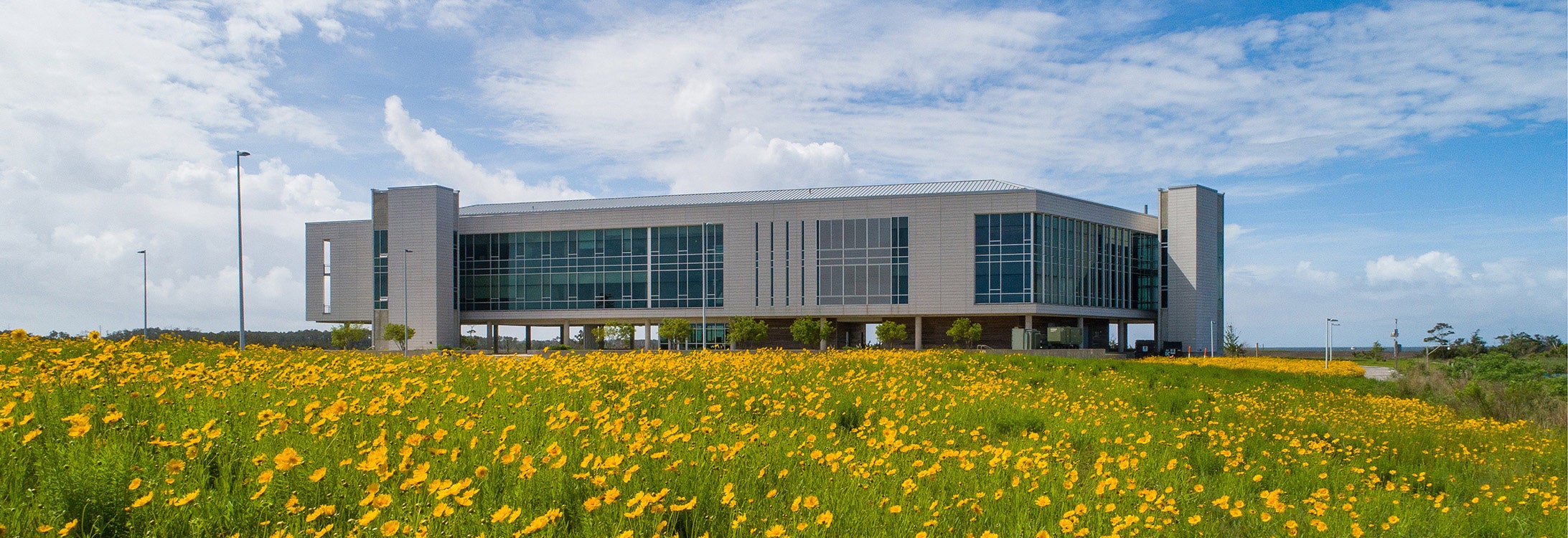A leader in coastal and marine research, education, and engagement…
The world population currently stands at more than 7 billion people, roughly half of them living within 100 kilometers of a coastline. Coastal population growth in conjunction with climate change puts increasing pressure on coastal ecosystems. Natural (e.g., Hurricane Florence and its aftermath, etc.) and anthropogenic coastal change (e.g., Deepwater Horizon oil spill; coastal overdevelopment and hardening; diminished coastal water supply and wastewater issues; coastal gentrification) create numerous challenges to residents of the coastal zone. To ensure that humans can adapt to changes and take advantage of opportunities in these economically important ecosystems, we must develop a comprehensive understanding of the processes, cycles, and interactions across this vitally important land/ocean interface.
ECU is fortunate to have a strong combination of natural, social, engineering, and health science expertise, coupled with interdisciplinary graduate programs that are leading to important contributions in coastal sustainability and humanity’s relationship with the environment. To better integrate across disciplinary boundaries and collectively focus new efforts along the coast, ECU’s coastal research and education activities were consolidated into single cohesive unit, the Integrated Coastal Programs.
Integrated Coastal Programs focuses on the sustainable use and vulnerability of the world’s coastal system. To ensure that humans can adapt to changes and take advantage of opportunities in marine and coastal ecosystems, our faculty are developing a comprehensive understanding of the processes, cycles and interactions across this vitally important land-ocean interface.

